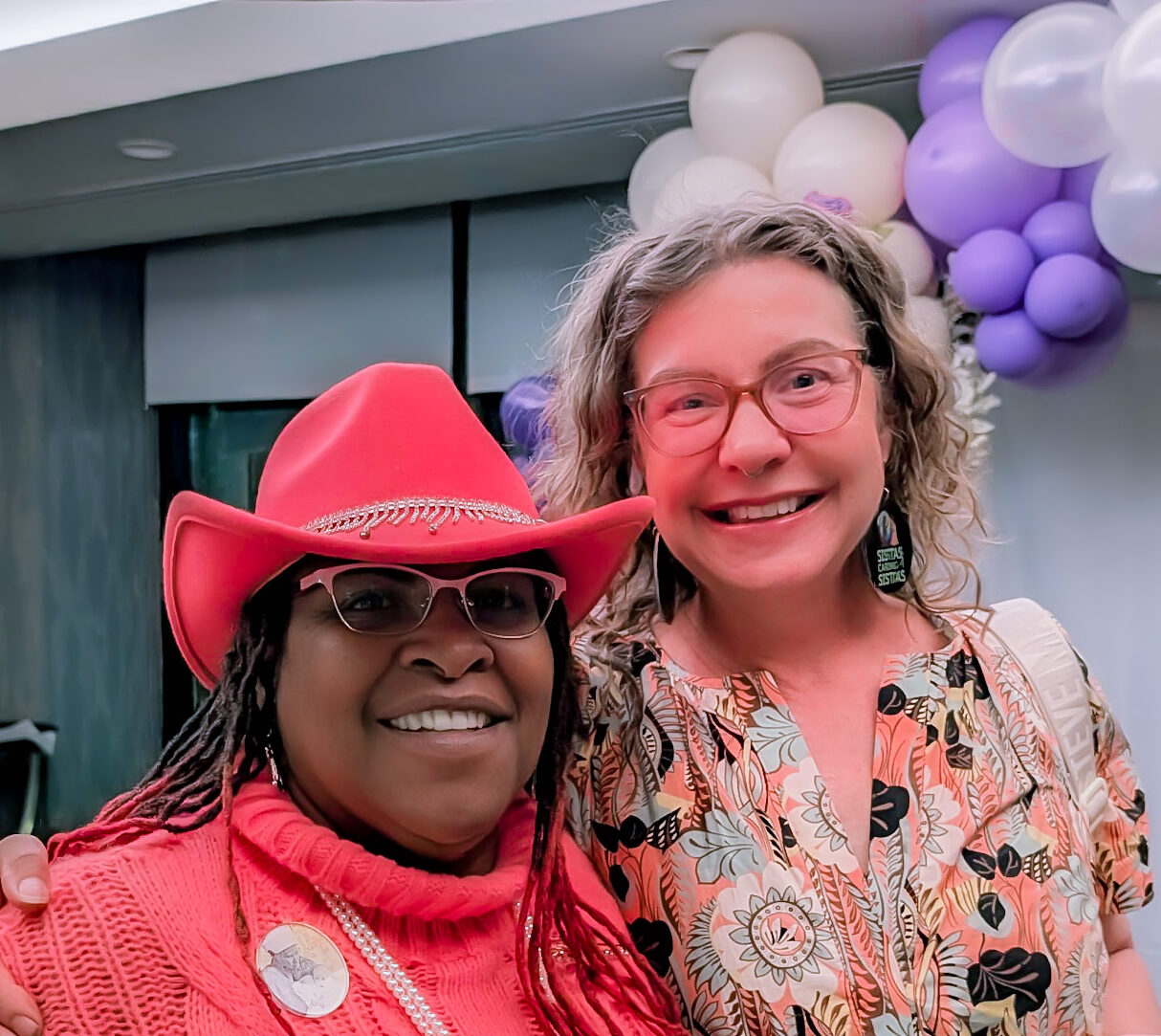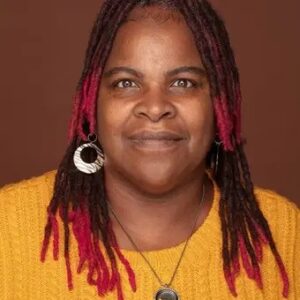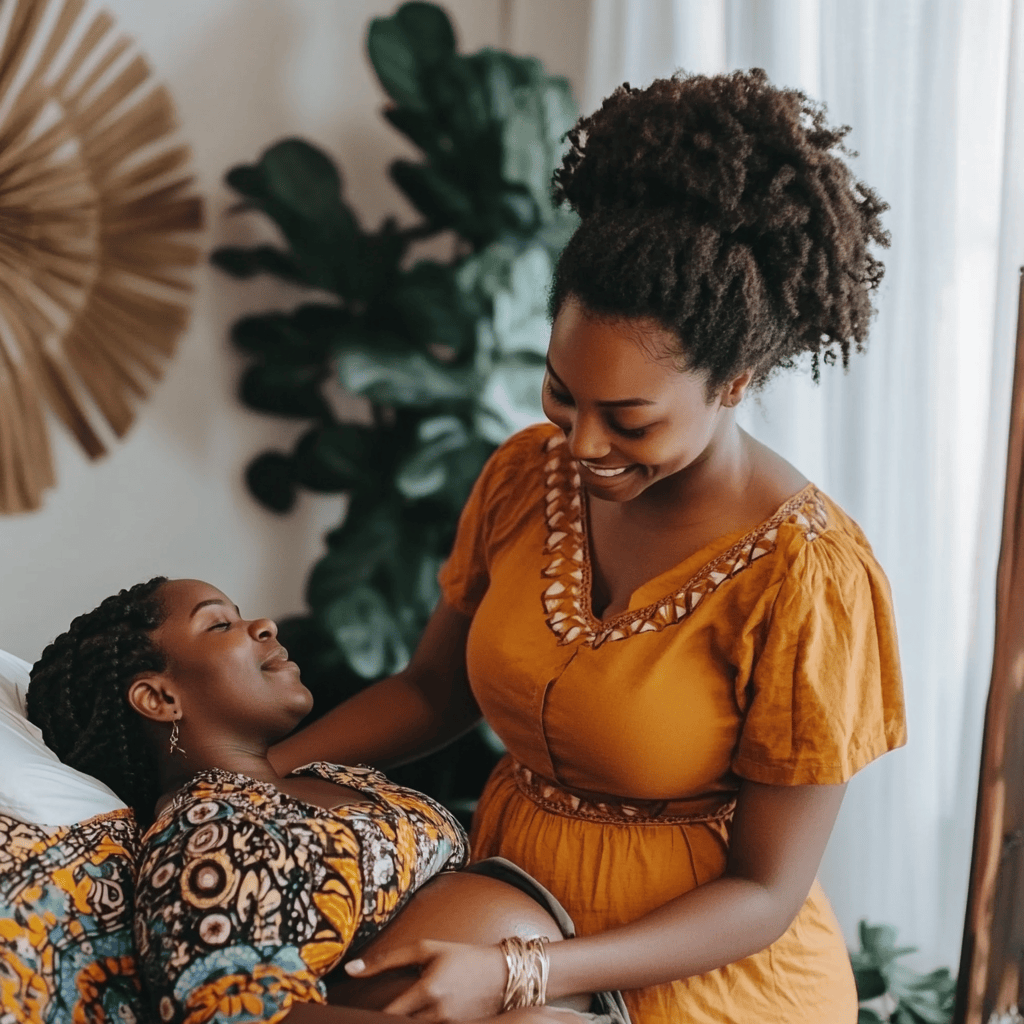History
Sistas Caring 4 Sistas
SistasCaring4Sistas (SC4S) began around a picnic table in Pisgah View Apartments in 2016. What started as community conversations about traumatic birth experiences grew into a powerful movement to change maternal health outcomes for Black women in Buncombe County. Disturbed by local data showing Black infants dying at three times the rate of White infants, a group of women committed to action. In November 2016, eight women of color participated in a doula training, and four continued on to form the founding team of SC4S. Today, SC4S is a diverse, intergenerational team of doulas with holistic professional experience, providing childbirth education, postpartum care, lactation counseling, and maternal health support. Our services are tailored to meet the unique needs of our community, including bilingual support and specialized care for mothers in recovery or facing substance use challenges.

Sistas Caring 4 Sistas
History
Our work is rooted in the vision and wisdom of our organization's co-founders, Nikita Smart, Wakina Robertson, Sade Mustakeem, and Cindy McMillian. In 2016, these four powerful women held space for our community to come together to envision how they could better support Black mammas and their babies during and after childbirth. These conversations catalyzed into a decade of trailblazing work in the birth justice field, where we have trained over 50 doulas of color, supported over 500 families with maternal health services, partnered with hospitals to integrate doulas into their healthcare teams, and advocated for reimbursement for doulas through Medicaid expansion with all major health insurance plans. These successes are a testament to the power of grounding our activities in the leadership and lived experiences of those who are most impacted by birth inequities.
To date, we have served over 500 women of color across Western North Carolina, working to dismantle systemic racism in maternal health and ensure every woman receives equitable, compassionate care throughout her journey to motherhood.
The History of Doulas
Their roots can be traced back to traditional birth support practices found in diverse cultures around the world.
Throughout history, communities have relied on experienced individuals within their own social networks to provide support during childbirth. These individuals, often referred to as wise women, birth attendants, or community elders, played a crucial role in supporting women during labor and delivery.
Traditional Healing Practices
Traditional birth support practices can be found in indigenous cultures around the world. For example, in African cultures, there is a long tradition of women supporting each other during childbirth, with experienced women providing physical and emotional support to laboring mothers.
Midwifery Traditions
Midwives have been essential figures in communities for centuries, providing holistic care and support to individuals during pregnancy, birth, and beyond. Many traditional midwives have served as community-based doulas, utilizing their knowledge and experience to provide culturally appropriate care.
Cultural Significance
Community-based doulas honor and respect diverse cultural practices and beliefs surrounding childbirth. They serve as bridges between medical systems and cultural customs, supporting individuals in embracing and maintaining their cultural identity during the birthing process.
Trusted Relationships & Bonds
Community-based doulas often come from the same communities they serve. This shared background helps build trust and rapport with their clients, fostering a sense of safety, understanding, and cultural sensitivity during the birthing experience.
Addressing Health Disparities
Community-based doulas play a vital role in addressing health disparities in marginalized communities. They advocate for culturally sensitive and equitable care, working towards reducing maternal and infant mortality rates, as well as improving birth outcomes within these populations.
Empowerment and Education
By providing information, guidance, and advocacy, community-based doulas empower individuals to take an active role in their own reproductive health. This helps ensure that individuals and families are informed and equipped to make choices that align with their cultural values and preferences.



